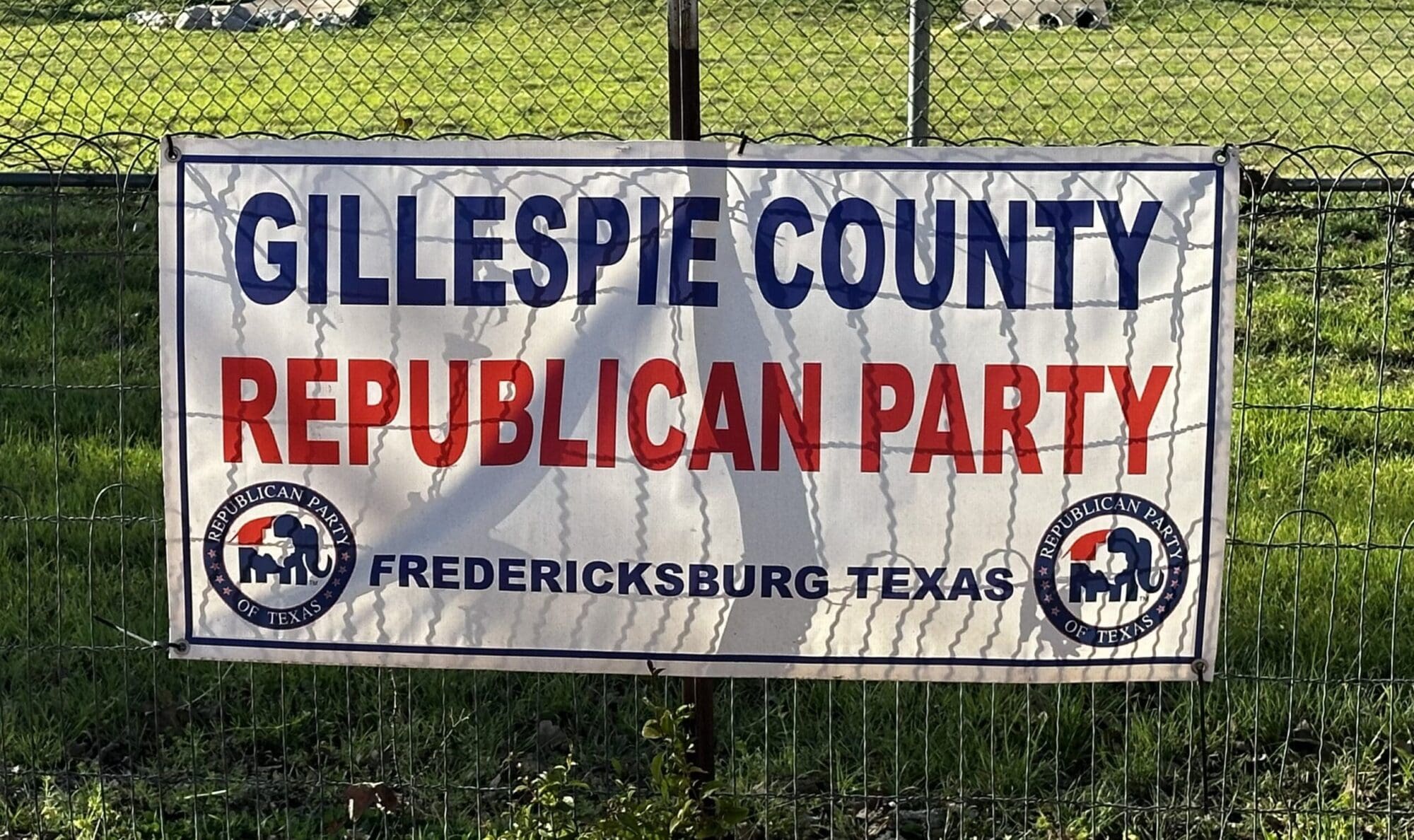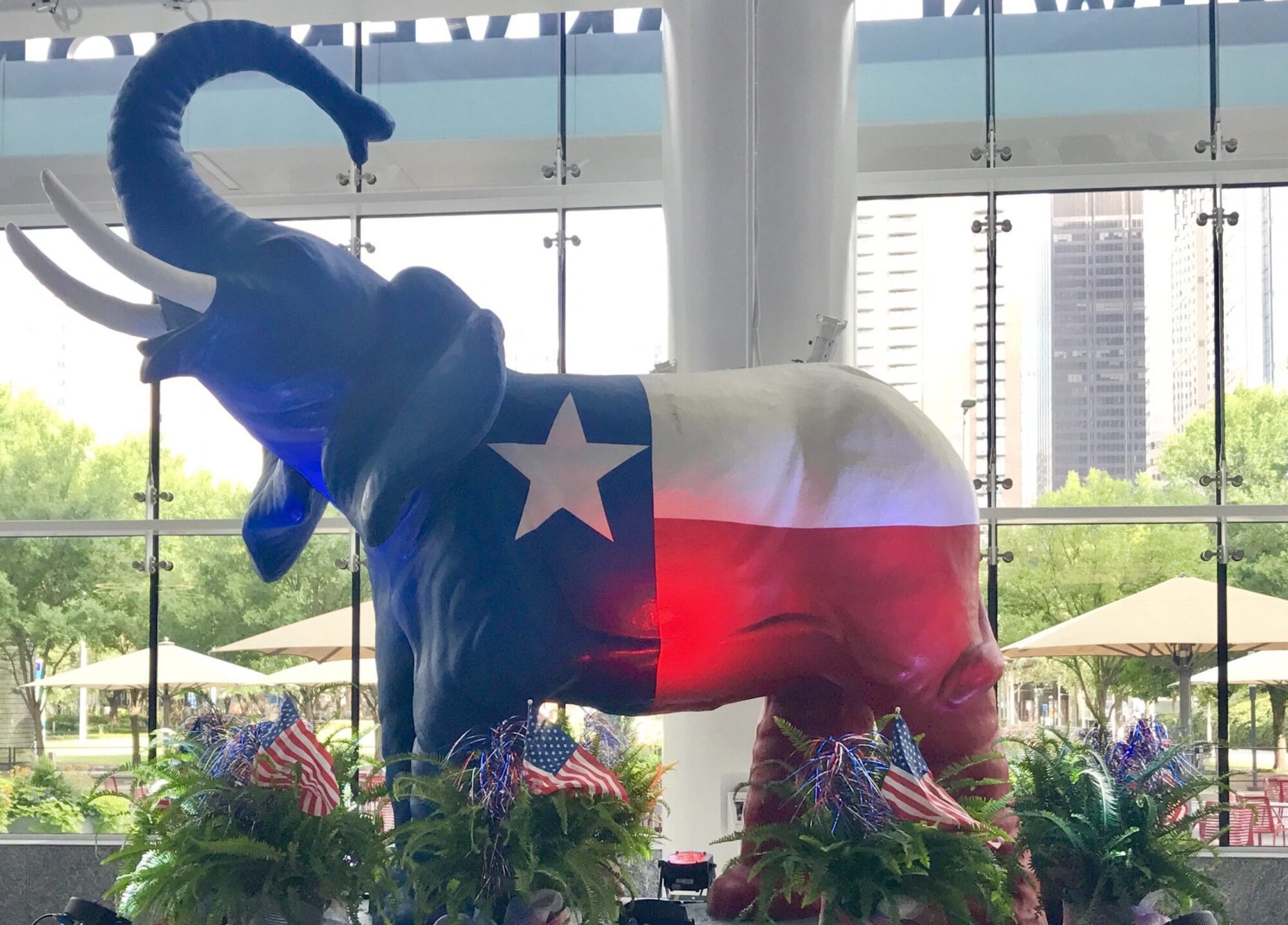Republicans in Gillespie County successfully completed a hand count of all ballots cast in Tuesday’s GOP primary, accomplishing a goal set last year to make their elections more transparent and secure.
“It was exhausting but so rewarding and what a team effort by all,” said volunteer Tracy Knudsen when the count was complete.
Counting began at 7:00 a.m. Tuesday and was completed around 2:00 a.m. Wednesday. Additional time was needed to complete required paperwork and then deliver the final tallies, which appeared on the county elections website just before 5:00 a.m.
But the total time invested in the project was far greater.
“This was six months of hard work,” Gillespie County Republican Party Chairman Bruce Campbell told Texas Scorecard.
“To be honest, I was a skeptic,” said Campbell. “I didn’t have a problem with the idea of hand counting. I just didn’t know if we would have the people and the wherewithal to do it.”
His predecessor as party chairman quit last year when local precinct chairs voted 7-6 to pursue a paper-based, hand-counted primary election.
“When I didn’t know if we’d have enough volunteers, probably 300 people who we didn’t know came out of the woodwork to help,” he said. “They showed up.”
In all, more than 250 volunteers counted almost 8,000 paper ballots—4,100 cast during early voting and about 3,900 on Election Day.
On Election Day, five-person teams began counting early voting ballots at 7:00 a.m.
Mail-in ballots had been processed by the early voting ballot board at the elections office and were delivered on Tuesday morning by constables, along with the early in-person ballots, to the counting crew.
As many as 18 teams at a time spent the day counting early ballots, using space at a local wine-tasting facility in Fredericksburg.
Counting teams also worked at each of the 13 precinct polling places, starting at various times depending on the number of ballots expected to be cast at each location. As teams finished counting at the polls, many volunteers then went to help with the early vote counting.
“The ‘event’ was beautifully organized and efficient,” said volunteer Sharon Wahrmund. “It ran so smoothly!”
The five-person counting teams included three talliers, one caller, and one watcher.
Campbell said each team could count a batch of 50 ballots in about one and a half hours.
Each ballot contained 24-25 candidate races (several uncontested), along with the party’s 13 non-binding ballot propositions.
The propositions made the counting process more daunting.
“The length of the ballot is a limiting factor,” said Campbell. “It would be tough to [hand count] this big a ballot in a huge county because it takes too many people. We could have used 500.
“It takes more people than you think it does,” he said, adding that it also “takes a lot of logistics.”
As soon as he took over as chairman, Campbell and the precinct chairs who make up the party’s executive committee began tackling those logistics: learning election laws, recruiting and training volunteers, obtaining supplies, and creating forms and procedures.
“Everybody found their niche,” he said.
An appointed primary committee began coordinating with the Texas Secretary of State’s office and Gillespie County Elections Administrator Jim Riley.
Campbell said the party decided to contract with the county to handle what the party did not want to do.
“We wanted to hand count,” he said.
The party also wanted paper poll lists during early voting and on Election Day, but the elections administrator had final say over early voting and chose to use electronic poll books at the county’s single early voting location to make state-mandated daily voter reporting easier.
Campbell noted that Riley has just one full-time and one part-time employee to help with election administration duties.
The party’s primary committee also met with Fredericksburg’s city secretary for guidance.
“The city hand-counts its votes,” said Campbell. “No one ever had a problem with that. It’s only when Republicans do it that it’s a crazy idea.”
Precinct chair David Treibs, who supported the hand-count project, designed the ballots and worked with a local printer—approved by the secretary of state—so the party could quickly get extra ballots if needed.
Treibs designed the ballots to fit on a single sheet of paper printed on both sides. To help detect counterfeit ballots, Treibs added an imprint that glowed under black lights, which were issued to each counting team. Riley’s office distributed the ballots.
Campbell said Riley helped the party with logistics as well, providing ballot boxes and other supplies.
“Everybody had a hand,” Campbell said Tuesday night. “Together we’re pulling it all off.”
No ads. No paywalls. No government grants. No corporate masters.
Just real news for real Texans.
Support Texas Scorecard to keep it that way!





